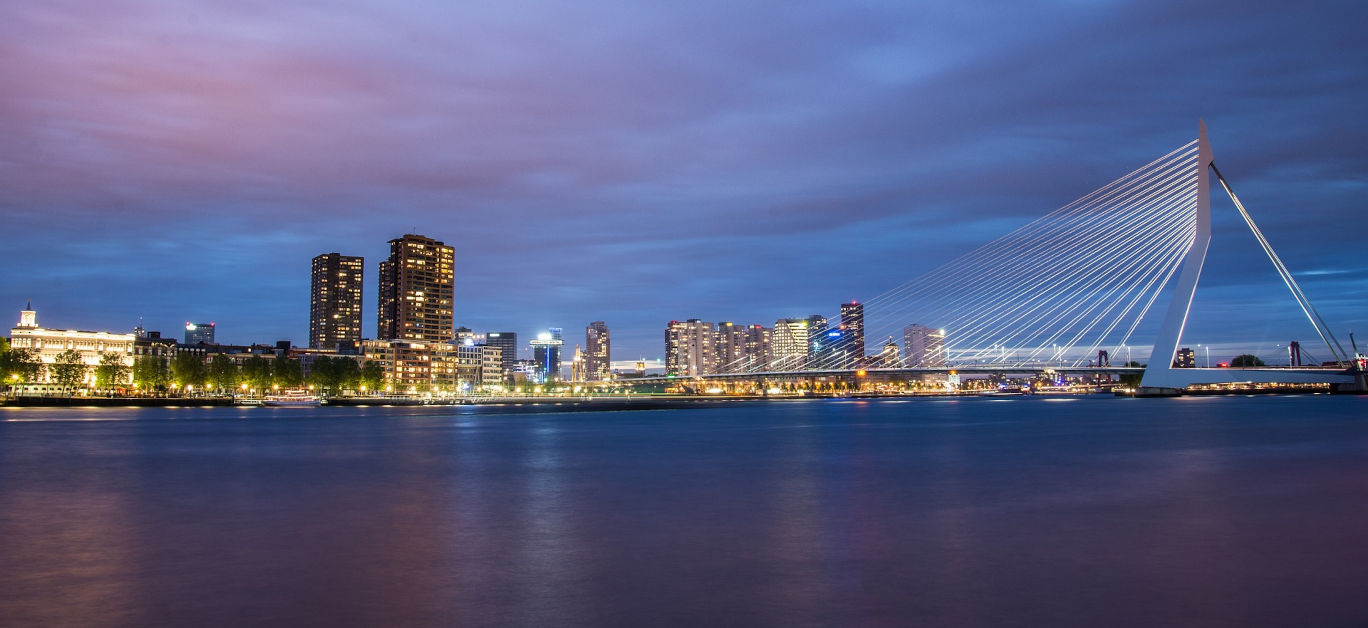Rotterdam, considered the ‘second capital’ of the Netherlands, attracts hordes of visitors drawn to the positive ‘vibe’ of this contemporary city. Those fortunate visitors are amply rewarded with an intriguing insight into Dutch maritime history and presented with an enviable opportunity to take a fascinating glimpse into a colourful kaleidoscope of culture.
Early records show that Rotterdam was subjected to regular flooding and several dams and dikes were hastily built. In 1270 the construction of a major dam on the river Rotte resulted in large groups of people settling on and around the riverbanks and the area began to prosper.
Seventy years later, William II, Count of Holland and Zeeland, and brother in law of Edward III, granted Rotterdam its city status and only a decade later, a shipping canal was completed, which provided access to larger towns, and trade quickly increased. The maritime trading routes to England and Germany were then established and Rotterdam became a strategic port for the Dutch East India Company.
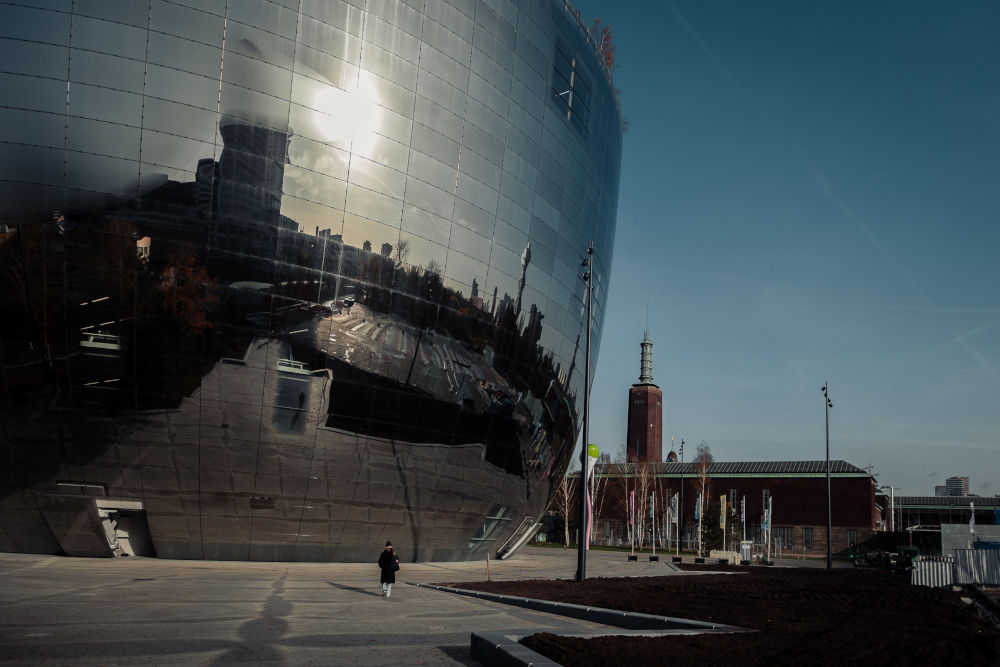
In 1872, a shipping canal, named the Nieuwe Waterweg, was completed and Rotterdam benefitted greatly, as this canal was, and is, the primary access route to the Europoort of Rotterdam, now considered to be the busiest port in the world. The river Rhine and the river Meuse connect Europoort to Germany’s Rurh area, Switzerland, Belgium and France and to Antwerp via the Sheldt Rhine canal.
For more information on the city’s maritime history I visited the Rotterdam Maritime Museum; founded by Prince Henry of the Netherlands in 1873, it is located on Leuvehaven. Permanent exhibits include the Masterpiece Collection, featuring the Mataró; the oldest model ship in Europe, which dates back more than six hundred years. I viewed the fascinating collection of East India Company charts, which remained in England for three centuries and were purchased by the museum in 2006.
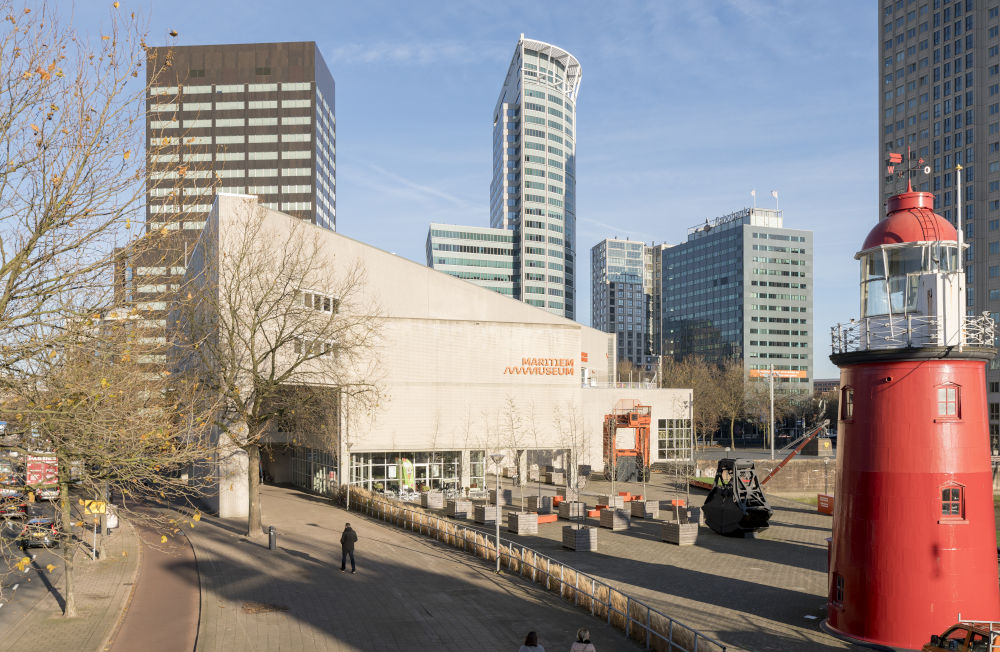
A very popular attraction is Professor Splash; giving ‘the little ones’ the chance to learn about life and work on a number of different vessels and their undivided attention will be drawn to a number of activities including sorting fish, loading and unloading cargo, navigating, dealing with a ‘fire’ onboard and the sudden outbreak of scurvy! The delightful squeals of the children and the ‘grown ups’ is wonderfully uplifting and it’s an unforgettable experience for the whole family.
Feeling peckish after all that arduous activity, I climbed on board the bright red painted Vessel 11, which was once a British lightship in service at Morecambe Bay and is now docked within walking distance to the Rotterdam Maritime Museum. Purchased by a Dutch entrepreneur, the vessel was completely restored and with the removal of the bulkheads and machinery, space was created for a restaurant and bar, a reception area and living quarters.
The current resident owners, a charming Dutch/English couple, have opened a very popular British gastro pub, which presents an excellent English menu including a delicious Sunday roast, bangers ‘n’ mash and shepherd’s pie and the hand pumped ‘Vessel 11’ ale, brewed specifically for the gastro pub by Kaapse Brouwers, is the perfect accompaniment.
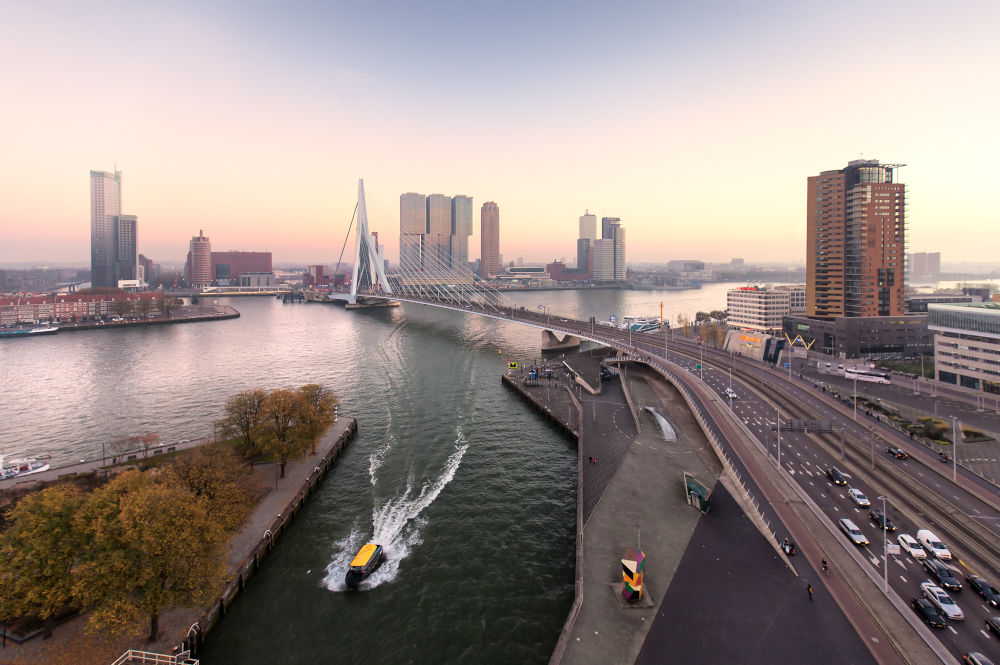
As I disembarked from the vessel I decided to make my way towards Erasmusbrug, the combined bascule and cable-stayed bridge, which is 802 metres in length, 33.8 metres in width and it features an asymmetrical pylon reaching 139 metres in height. Locally known as ‘the swan’, the bridge spans the Nieuwe Maas, connects the north and south of the city and carries four traffic lanes, two tram tracks, two cycle lanes and two pavements. It is part of Rotterdam’s logo and is, quite simply, glorious.
Re-invigorated, I decided to take part in a Rotterdam shopping extravaganza and headed for Coolsingel, only a twenty-minute stroll away and I passed by the imposing City Hall. Dating back to 1915, the foundation stone was laid by Queen Wilhelmina and it is one of Rotterdam’s landmarks. I then took a wander around De Bijenkorf, an enormous department store crammed with fashions, lingerie, cosmetics and a wonderful perfumery. I was easily persuaded to part with more than a few Euros.
For those of us who are art lovers, Boijmans Van Beuningen Museum, located on Museumpark, presents a collection of 145,000 pieces and includes works by Rembrandt, Jan Steen, Frans Hals, Van Gogh and Kandinsky. One of the most intriguing exhibits is ‘A day in the life of Odilia Beck’, a fascinating snapshot of Dutch life in the 17th century. Another masterpiece, an oil sketch by Rubens which is simply magnificent, is The Unification of England and Scotland, which was designed for a very large ceiling in Banqueting House in Whitehall.
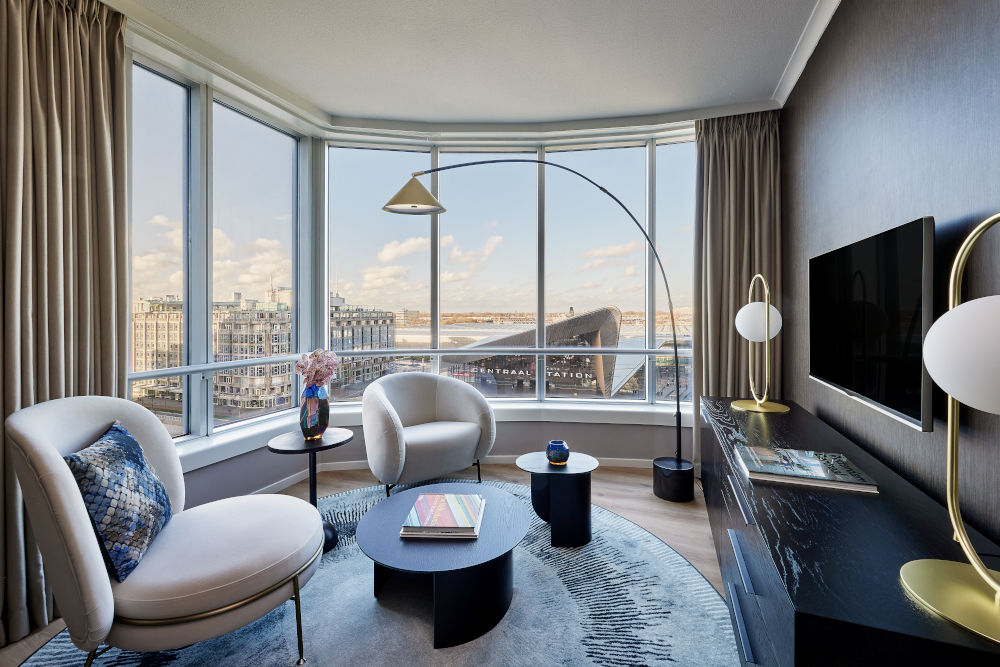
Another treat is the Chabot Museum, which is housed in a beautiful white villa, also located in the Museumpark and just a short hop away from the Boijmans Van Beuningen. Built in 1938 as a private property, the villa houses an extensive collection of exhibits by the very talented Dutch painter and sculptor Hendrikus Chabot.
Feeling a trifle weary and seeking a high-end hotel in the centre of the city, I opted to stay at the Rotterdam Marriott located on Weena. Accommodations are spacious, comfortable and feature contemporary furnishings. I was escorted to an airy one-bedroom executive suite measuring 69 sqm, and the marble bathroom with its separate bathtub for a soak in evening and a rejuvenating shower for the morning was just the ticket. My executive suite included access to the M Club lounge and I made full use of the complimentary buffet breakfast, complimentary light snacks throughout the day and scrumptious hors d’oeuvres in the evening.
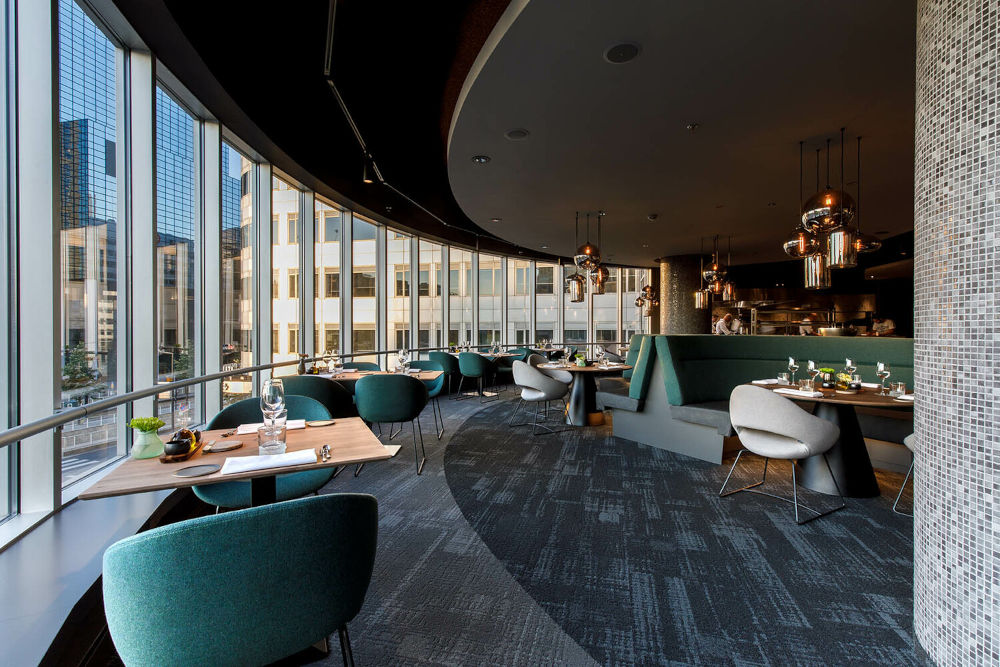
I decided to dine in-house and headed for Restaurant The Millèn, which offers a new monthly menu of distinctive dishes with cosmopolitan flavours. I ordered the succulent sautéed scallop accompanied by a chilled glass of house white followed by the most delicious blood orange with white chocolate crèmeux, kataifi, timut pepper and blood orange ice cream. The Millèn offers a first class dining experience and each of my dishes were served with aplomb.
To work off those calories I hopped on the number eight electric tram from Rotterdam Centraal and in less than ten minutes I arrived in Oostkousdijk, a stone’s throw from Delfshaven. This charming picturesque area of Rotterdam was once part of Delft and is known for its links to the Pilgrim Fathers, who settled in Delftshaven prior to their journey to North America.
Delftshaven was also a hub for the Dutch East India Company and as I wandered around the courtyards, I noted the abundance of historic buildings and the relaxed pace of river-side life reflected by the series of tranquil canals and waterways. I joined the locals in a waterway café, ordered a glass of ale and made a toast to the charming and captivating Rotterdam.
Factbox
Flights – British Airways fly from London City Airport to Rotterdam with a flight time of just under an hour.
Accommodation – For details of the featured hotel visit marriott.com
Images – excluding accommodation and main image – courtesy of NBTC Holland.












